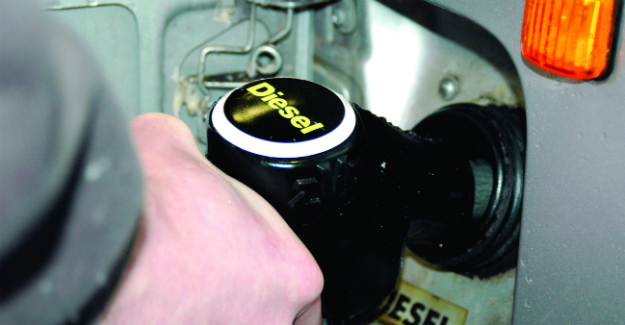Changes to showroom tax to fund clean air plans
The RAC Foundation has welcomed the Chancellor’s decision not to penalise all diesel drivers to help pay to reduce air pollution.
In July 2017 the government published its plan to cut roadside nitrogen dioxide concentrations. It said:
“Additional measures to improve air quality announced through this Plan will therefore be funded through changes to the tax treatment for new diesel vehicles, or through reprioritisation within existing departmental budgets. Further details on changes to the tax regime will be announced later in the year.”
However, despite media reports predicting the introduction of a fuel duty differential to increase the relative cost of diesel over petrol, or changes to VED bands for diesel cars already on the road, Mr Hammond only acted to increase the so-called showroom tax on new diesels by pushing them all up by one VED band.
As part of Budget 2017, he also increased the existing Company Car Tax diesel supplement by one percentage point.
Steve Gooding, director of the RAC Foundation, said:
“Twelve million drivers will breathe a sigh of relief knowing the Chancellor has not indiscriminately penalised diesel owners for the problems caused by relatively few vehicles, while people in the market for a new, average-sized diesel will probably only pay £20 more under the showroom tax changes.
“It is right that the Chancellor avoided calls to put up duty. Transport – and for most people that means motoring – is already the largest single area of household expenditure bar none and pump prices have recently been on the rise adding to the pressure on domestic budgets.
“No one should feel too sorry for the Treasury. It still receives two thirds of what we pay on the forecourts.”
Mr Gooding also supported further moves to encourage the take up of ultra-green cars.
“We welcome the Chancellor has heeded our calls to extend the commitment to electric car grants and provision of a public charging network. EVs have to be both affordable and usable, and these spending announcements help address both issues. But it will be important that the money is invested in the right type of chargers in the right locations.”
The Budget document contained no mention of a scrappage scheme to get the most polluting vehicles off the roads, however a consultation was launched alongside the Budget to see how the £220 million Clean Air Fund could be spent to “support individuals and businesses affected by local NO2 plans; in particular, private car drivers on lower incomes or other vehicle owners with limited travel alternatives.” This could include scrappage.
In the UK, there are 39 million licensed vehicles. Of these:
- 32 million are cars – 12.6 million (39%) of the cars are diesel
- 4 million are vans
- 523,000 are HGVs
ENDS
Contact:
Philip Gomm – Head of External Communications – RAC Foundation
[email protected] | 020 7747 3445 | 07711 776448 | 020 7389 0601 (ISDN)
Notes to editors:
The RAC Foundation is a transport policy and research organisation that explores the economic, mobility, safety and environmental issues relating to roads and their users. Charity number 1002705.
The Foundation publishes independent and authoritative research with which it promotes informed debate and advocates policy in the interest of the responsible motorist. All the Foundation’s work is available at: www.racfoundation.org


